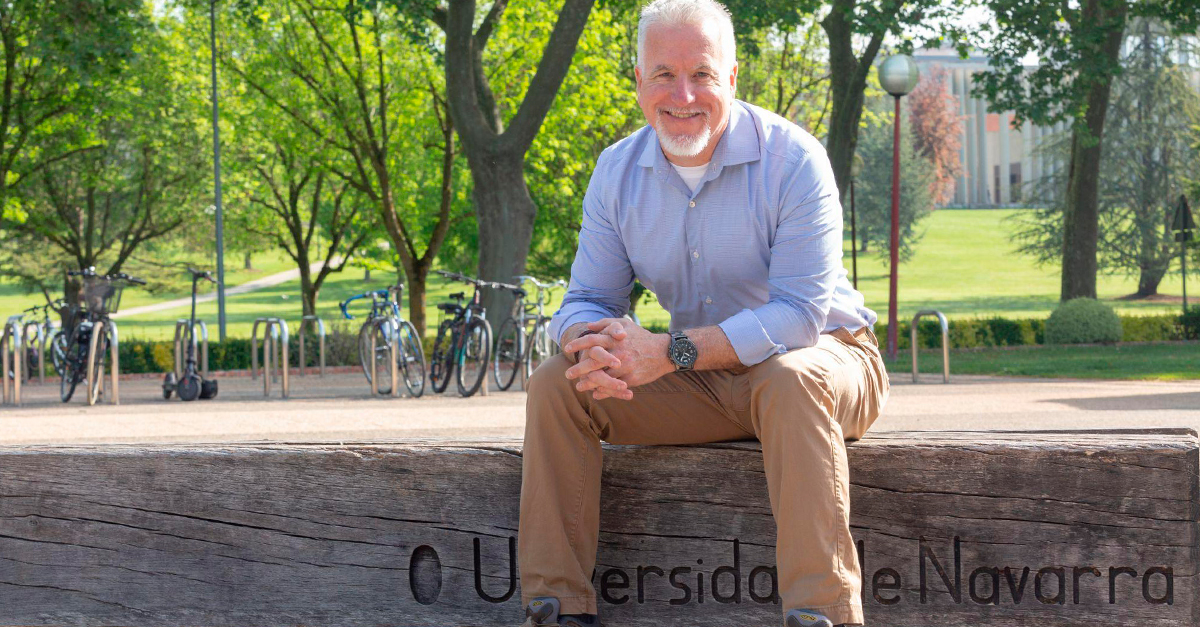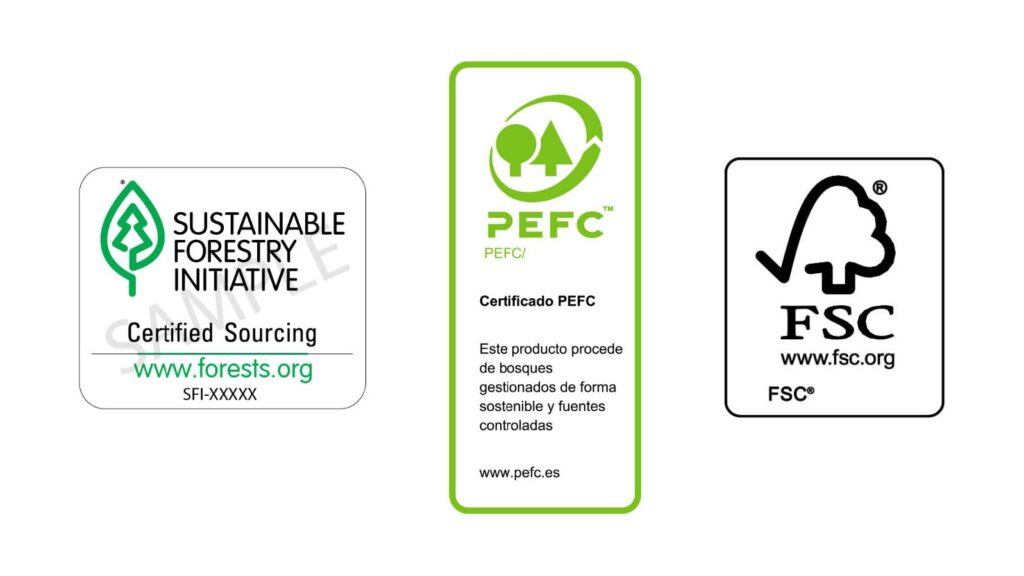NEWS & EVENTS / FORESTAL / DARREN SLEEP LECTURE AT THE MADERA ONESTA CHAIR
NEWS & EVENTS
< RETURN
Darren Sleep: “Navarra is the Spanish region with the most forests certified for sustainable management”
The biologist and PhD in Zoology, who directs the SFI (Sustainable Forestry Initiative) conservation programme in Canada and the United States, gave a lecture at the School of Architecture of the University of Navarra.

The biologist and PhD in Zoology, Darren Sleep, gave a lecture at the School of Architecture of the University of Navarra, as part of the activities of the Onesta Wood Chair. Director of the SFI (Sustainable Forestry Initiative) conservation programme in Canada and the United States, Sleep demonstrated the importance of sustainable forest management in combating climate change by developing innovative approaches to climate-smart forestry, biodiversity conservation and restoration and water resource protection.
When we buy a product, we can find out whether it has been produced sustainably thanks to a seal awarded by certification systems such as PEFC (Programme for the Endorsement of Forest Certification), FSC (Forest Stewardship Council) and SFI (Sustainable Forestry Initiative). The seal usually features a tree next to one of these abbreviations. This distinction can be awarded to companies, products or institutions.

“We do see increasing threats. Climate change is causing increased fires that cause great amounts of problems. It is in some case the unmanaged forests that are suffering more from these effects”, Sleep said. In Navarra, more than 60% of the forested area is sustainably managed. . “Our partner organisation here in Spain, PEFC, has done a great job, particularly in Navarra,” stated Sleep. According to the latest data provided by the Regional Government, 514 forests are certified by PEFC and 30 by FSC. Furthermore, the Government of Navarra has recently approved the 2023 Annual plan for the prevention, surveillance and extinction of forest fires.
Sleep demonstrated the importance of sustainable forest management in combating climate change by developing innovative approaches to climate-smart forestry, biodiversity conservation and restoration and water resource protection.
Young people, the future of forests
The word “sustainability” seems to be very much embedded in our language, but sometimes its meaning is not entirely clear. “The concept of sustainability is the ability to do something today that we need to do or want to do, without damaging the future opportunity to do the same thing. In the case of forestry, for example, sustainable forestry means being able to harvest wood and manage forests without damaging the ecosystem servicesservices such as carbon sequestration, wildlife habitats, water purification and oxygen production… In the future, the next generation who want to do the same thing can still do it because the forest is still healthy and the forest is still thriving and able to produce these things”, Darren Sleep explained.
“In November 2022, Enric Vadell and other scientists published a paper in Forest Ecology and Management indicating that in Spain there needs to be increased emphasis on climate-smart forestry to adapt to climate change. This is something that in North America we have been working on for the last few years”, noted Sleep. SFI seeks to meet sustainability goals through four areas of work: forest management and supply chain standards, research, community involvement and educational initiatives. Sleep highlighted the links they establish with indigenous communities and the importance of showing young people the professional alternatives produced by forests. “Sustainability goes far beyond the science of conservation and is cost-effective”, he added.
He also stressed that research and scientific communication are essential to show the data supporting sustainable forest management. They make it possible to present the results to upstream actors in the supply chain to encourage companies to meet and demonstrate their sustainable goals, which in turn contributes to meeting conservation goals. “We want everyone, especially young people, to value forests. You can only protect what you understand”, stated Sleep.
The Ecological Sciences and Sustainability in the North American Forestry Sector lecture was organised by the School’s Onesta Wood Chair, the University’s Faculty of Science and the Government of Navarra.




